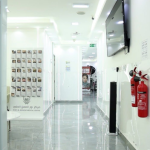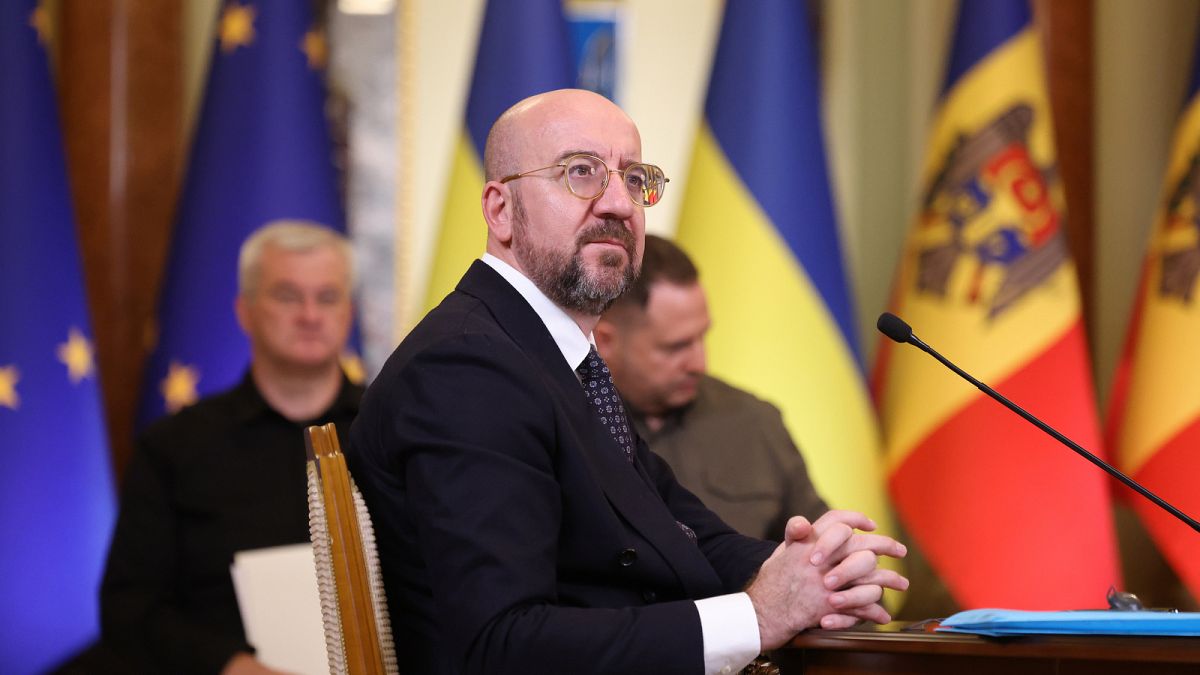The European Union must get bigger or risk facing a “new Iron Curtain” along its eastern flank, European Council President Charles Michel said Monday as the bloc marks 20 years since its largest ever enlargement.
“Enlargement is vital for the future of the EU because without enlargement [there is] a risk for a new Iron Curtain,” Michel said in an interview with a select group of journalists.
“It would be extremely dangerous if you would have an unstable neighbourhood with a lack of prosperity or lack of economic development. These are our common interests – of candidate countries and the EU – to make progress, to speed up,” he added.
His stark warning comes on the anniversary of the so-called big bang enlargement of 2004 when ten countries – including seven former Soviet republics or satellite states – were granted EU membership.
Had it not been for that historic expansion, the EU as it is today would be split by a “de facto Iron Curtain,” Michel said, meaning those countries on the eastern side would have been targeted by “political and ideological attempts by the Kremlin to occupy them.”
Nine countries from eastern Europe and the Western Balkans are currently waiting in the wings to become fully-fledged EU members. The process of joining the bloc is notoriously long and complex, with candidate countries required to meet tough EU demands, including significant judicial and constitutional reforms.
Whilst Russia’s unprovoked invasion of Ukraine has injected fresh impetus into the EU’s dormant enlargement policy, attempts to speed up the accession process risk being thwarted by more sceptical member states.
Critics say long delays in integrating candidate countries are fomenting a sense of exasperation with Brussels.
Last December, Hungary’s Viktor Orbán – whose government will hold the six-month rotating presidency of the Council of the EU from July – threatened to single-handedly halt the opening of accession talks with Ukraine by wielding his veto power.
But Michel played down speculation that a Hungarian presidency combined with a more polarised European Parliament post-elections could further scupper candidate countries’ paths to membership.
“I’m very confident that the next institutional cycle will be the occasion to reaffirm our joint political will, to enlarge,” Michel said.
Asked whether the Hungarian government could further derail Ukraine’s accession by excluding the issue of enlargement from the Council’s agenda, Michel said: “I am not nervous at all.”
“I am confident because I feel that, the leaders – so the vast majority of them – they are absolutely convinced this is important for the future,” he also said.
Michel believes that the so-called “constructive abstention” – notoriously used by Orbán last December when he left the room as his fellow 26 leaders approved the opening of Ukraine’s EU accession talks – could be a safety net for similar decisions in the future.
“We’ve used the constructive abstention, which is giving the possibility for a country to say, look, I don’t like it and I’m not very comfortable with this decision, and I make public my opinion, but I do not want to block the vast majority of the member states.”
Ukraine requires ‘specific transition’
The possible integration of Ukraine – the war-stricken country whose GDP per capita is three times smaller than that of Bulgaria, the EU’s smallest economy – is sparking fears Kyiv’s accession would destabilise the bloc’s budgetary structure and mean many EU countries would switch from net beneficiaries to net contributors.
A recent report by think tank Bruegel put the bill of the war-torn country’s EU accession at a hefty €110 to €136 billion over seven years.
Michel says that to alleviate the potential hit of Ukraine’s accession on the EU’s economy, the country would need a “specific transition” based on a model not currently “in the system,” not least because of the potential cost of its post-war reconstruction.
Michel also said other countries more closely aligned with the bloc’s economy could be accepted as EU members before the end of this decade. The President has previously said that the EU must do its homework – including implementing the necessary reforms – in order to be ready to enlarge by no later than 2030.
He called on the bloc not to be “afraid” of Ukraine’s integration, claiming that the country will be an attractive place to invest as part of the single market.
Read the full article here





























